However complex the urban sustainability question is, the facts are clear to all. Over the next four decades, the global urban population is expected to nearly double, with the vast majority of this happening in Asian and African cities; if we do not rethink and coalesce our approaches and practices, there will be rising urban inequality and conflicts, underpinned by accelerated resource scarcity and uncontainable environmental impacts.
What modes of urban governance are emerging across the developed and developing world that demonstrate that it is possible to tackle the underlying challenges of urban growth, urban poverty, and environmental unsustainability?
This was the question that brought the authors of this essay together. We write as a group of 18 world social science fellows on urban governance, gathered by the International Social Science Council (ISSC) and Cities Alliance, from Sept. 8-13, 2015 the in Durban, South Africa, hosted by the University of KwaZulu Natal and the Municipal Institute of Learning of eThekwini Municipality, under the professorial guidance of Mark Swilling (Sustainability Institute-Stellenbosch University South Africa) and Etienne Nel (Comparative Research Programme on Poverty, CROP), University of Otago-New Zealand.
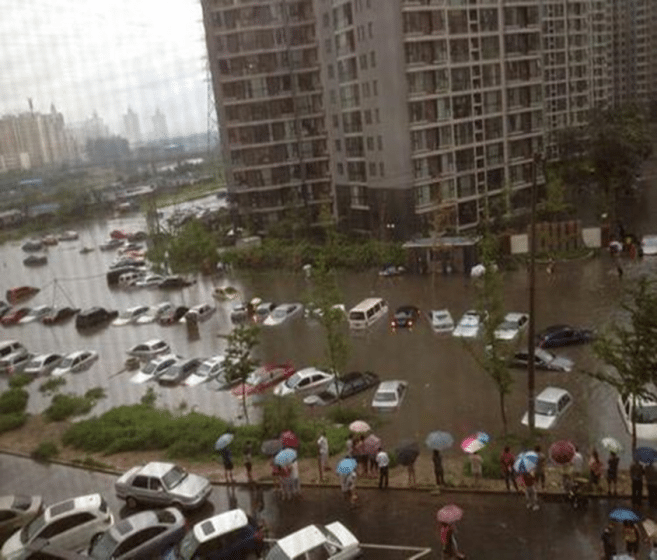
The task at hand was not to formulate a mode of urbanization governance for urban sustainability, but rather to draw on our differing disciplines—sociology, land management, architecture, political science, social and environmental justice, gender studies, urban geography, anthropology, spatial planning, economics, and environmental science—to generate insights around one question that knitted our case studies: the question delineated above.
Firstly, the question enabled us to realize that demonstrating the type(s) of urban governance that would potentially lead cities into a sustainable future is a task that no single theory or approach can claim to have researched extensively and infinitively, and therefore what works at multiple scales and in different contexts is something that is yet to be established. We reasoned that transformation via adapting to pressures such as climate change, globalization, social fluidity, or relocation projects is not a linear process that would necessarily be inscribed into a model to ultimately have a technical fix.
Therefore we all had, and continue to have, a mutual responsibility to break the disciplinary walls and become transdiciplinarians who can provide useful leads to tackling today’s global urban challenges, majorly: urban poverty, climate change, inequality, social injustice, infectious disease, violence, informal settlement, and the gradual extinction of urban biodiversity.
The case studies
Our case studies were structured around six themes, including: 1) climate change and governance; 2) environmental justice and sustainability; 3) land use, agriculture, and governance; 4) inclusive urban development; 5) urban poverty; and 6) urban environmental sustainability and housing. Although these themes shed light on the nature, extent, and dimensions of sustainability challenges and the implication for urban governance, the general observation was that these consisted of same script, but with different casts. What cut across the different themes is that urban environmental and socio-economic challenges are not site-specific (a feature that the case studies attempted to indicate) and, therefore, are global in nature, thus generating the term glocalities—meaning local examples and evidence that reflect global realities.
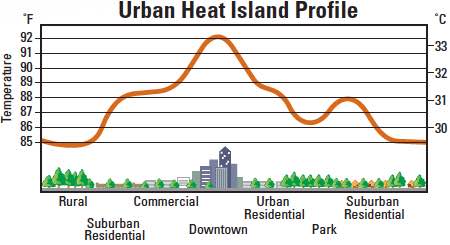
Climate change and governance: The overarching concern under this theme was to explore, with data and examples from Delhi, India; Cape Town, South Africa; and Dhaka, Bangladesh, the role of national governments and municipal authorities in tackling climate change in cities. In Delhi, the inter-linkages between land use/cover, air pollution, urban heat island, and human health have become a clear threat to urban health, which requires enhancing disaster management capabilities within government.
This can be realized through complementing the traditional role of regulating and taxing carbon-intensive activities with data-based pathways to draw the attention and influence of decision-makers and by investment in waste recycling and re-use to avert the impending ecological crisis. This discussion was followed by the case from Cape Town, which sought to understand what enables local governments to initiate and follow through with the process of mainstreaming climate change adaptation. In Cape Town, the author found that the enabling factors included: access to a knowledge base, the availability of resources, political stability, and the presence of dense social networks, which all positively affect adaptation mainstreaming (Lorena Pasquini, 2014). On the one hand, it is such factors that different levels of government and stakeholders need to support with a varied set of interventions, while acknowledging the effects of social network characteristics on facilitating institutional change.
On the other hand, the case on Bangladeshi cities pondered the ways through which urban governance systems make resilience to climate change possible. The evidence presented suggested that a city’s ability to conceive and implement resilience plans is dependent on circumventing cyclical political stalemates, with the purpose of creating situations where national, state and city ruling parties can work together quickly and effectively to implement policies and programmes.
Environmental justice and sustainability: Environmental justice for urban sustainability is context-dependent, but this theme focused on: i) transformative urban politics in the megacities of the global south; ii) inclusive approaches to urban climate adaptation planning and implementation; and iii) evaluating equity and governance in sustainable cities. The initial presentation centered on the environmental justice movement in Dhaka, Bangladesh, and the series of statist endeavors to use a deeply militant police force to stall the advocacy agendas of metropolitan solidarities. The evidence illustrated that civic environmentalism is a form of urban politics characterized by social discontent, and that it is often perceived as a facilitator of urban crime and insecurity, thus requiring state intervention.
On one hand, the social and political landscape is one characterized by formally elected city councilors and a metropolitan police force that is accountable to parliament, whereas, on the other, there is continued statist control over environmental civil society groups through the use of strict legislations and intelligence services, thus making cities areas where people’s options are constrained by fear and intolerance for popular movements. By drawing on experiences from Quito (Ecuador) and Surat (India), the next case study laid emphasis on the participation of experts, affected communities, and a wide array of citizens to sustain inclusivity in programmes that incorporate local needs and concerns into adaptation processes and outcomes.
The other approach offered by the discussant was on building targeted partnerships between key government, private, and civil society actors to institutionalize robust decision-making structures, enhance abilities to raise funds, and increase means to directly engage with local community and international actors (Eric Chua, 2015). The presentation that followed gave insight on the importance of institutional synergies in delivering on Sustainable Development Goal (SDG) 11: make cities and human settlements inclusive, safe, resilient and sustainable. Achieving this goal depends heavily on how coherent national and international efforts are in designing criteria for evaluating equity and governance for city sustainability, meaning that indicators for SDG 11 ought to enable countries to adapt global urban targets to their own national contexts.
Land use, agriculture and governance: Urban land use planning, if based on sustainable development principles, can help address the challenge of informal settlement, tenure insecurity, and—ultimately—urban poverty. This is the premise from which discussants emerged to talk about three topics: i) relocation or renewal? The case of Mona Commons, Jamaica; ii) collaborative sub-urban transformation for land use compatibility in Kampala city; and iii) tackling the challenges of urban poverty through “land-use planning for tenure security”: steps and activities for action in Port Harcourt, Nigeria.
Evidence across the three case studies provided participants with an integrated understanding of the dynamics in urban land use and demonstrated how to effectively utilize policies and planning instruments to manage urban growth and achieve sustainable, equitable, and efficient development outcomes. It was acknowledged, however, that sustainable land use planning for tenure security and poverty reduction is frequently a political act characterized by material interests amongst land administrators in national and municipal offices, land lords, and tenants, with forces that operate not only at different geographical and institutional levels but that are also interlocked in nature. The availability of spatial information is often an obstacle, alongside widespread corruption and an inadequate skills, which pose institutional challenges for planning, forecasting, modelling and monitoring land use change and supporting land use decisions, especially in developing countries (Chigbu, 2015).
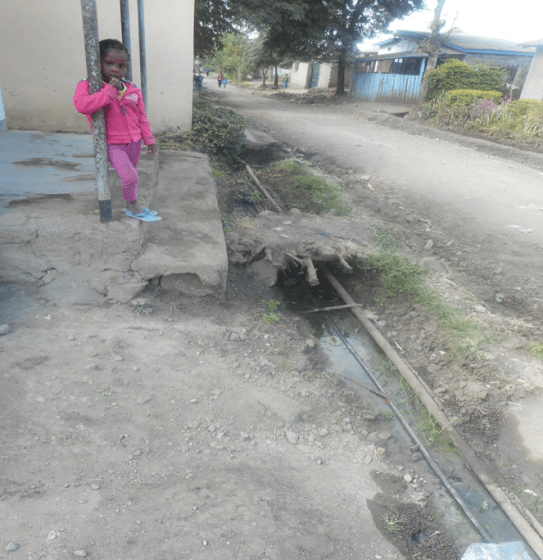
Inclusive urban development: Due to global capital flows for infrastructure development, economic productivity and affluence have become the manifestations of urban development: special economic zones, office towers, rapid transport corridors, transport terminals, shopping malls, luxury and storied housing projects. Although urbanites at the lowest income scales may seem to have benefited from the economic opportunities that have accompany such growth agendas, the evidence presented by the fellows showed that wealth production in cities has not necessarily contributed to improved living conditions for the vast majority of the urban population.
This urban trend was illustrated across four case studies including: i) avenues in the tropics: trans-disciplinary tools for emerging cities; ii) retrospection of private-state-citizen spatial planning financing model in the global South: potentials and limitations; iii) trajectories of peri-urban futures: mapping spaces of inequality, social justice and sustainability in Manila’s Peri-Urban Fringe; iv) challenges of china’s urbanization and the promise of new-type urbanization. The governance challenge posed by the discussants was how to provide infrastructure and services for rapidly growing populations, how to address multiple issues relating to slums and squatter settlements, and how to deal with the adverse impacts of climate change.
Addressing urban issues, according to the fellows, requires an integrated approach that specifically targets the poor, promotes economic development, treats cities as living ecosystems, and fosters the participation of the private sector and civil society. The role of research and researchers was also questioned in terms of fostering transdisciplinary approaches to generate the knowledge needed to solve urban poverty and to improve the social and environmental living conditions of the vulnerable. The possibilities and benefits of putting the transdisciplinary approach into operation were discussed extensively as a way of enabling researchers, practitioners, policy-makers and urbanites to come together and coproduce knowledge that leads to more collaborative and effective interventions, all in a bid to confront the complexity of solving urban problems.
Urban poverty and governance: What institutions of city governance do impacts poverty, and the fellows under this theme were not referring only to municipal government, but to all agencies of the state that have an interest in the city, as well as private businesses and NGOs. The session illustrated this by centering on two cases: i) urban poverty, neighborhood, and social capital in NYC; and ii) from dumpsite scavenging to waste management systems: political implications for urban governance in the interior of Argentina. In NYC, the evidence indicated that disadvantaged neigbourhoods are characterized by lack of safety and limited resources (low quality housing, low level of trust in neighbors, abandoned public space, limited food resources, limited access to health services and education), which has led to a break down in social capital in three ways: i) bonding (limited contact with neighbors due to lack of trust); iii) bridging (limited contact with persons not experiencing poverty); and linking (limited contact with persons in power). The discussant noted that success in addressing this neigbourhood challenge depends on context, but largely requires anti-poverty interventions that diagnose and act on the three levels of social capital (bridging, bonding, and linking).
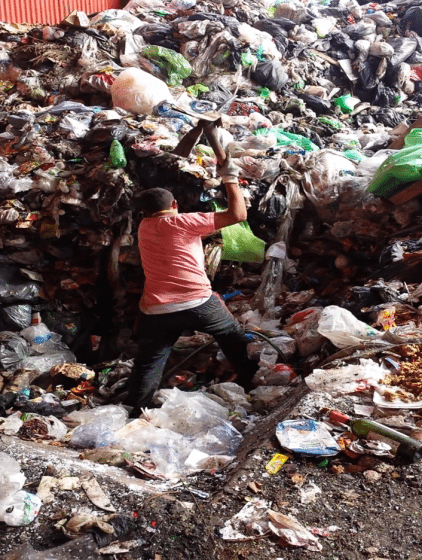
Conversely, the Argentina case, featuring the cities of Mendoza, Cordoba, and La Plata, focused on the different strategies for the inclusion of informal scavengers into formalized waste management systems. In the presentation, several factors were identified as improving the chances of producing effective, sustainable inclusion, namely: political credibility of the leaders, program stability, and step-by-step formal entitlement of the scavengers and their organizations. At the level of program implementation, evidence stressed the need to articulate public and private interests if the value chain of different materials (plastic, glass, cardboard, etc.) are to be streamlined (Zapata et al. 2013). We used the discussant’s example of waste management to delve into the relationship between the state and suburban governments and capital. Fellows were concerned about whose interests are advanced in city sustainability agendas, and whether the power of capital encourages the state to flout agenda setting and policy making to the disadvantage of the poor.
Urban environmental sustainability and housing: Attention under this theme was drawn to: i) reducing inequality, ramping up environmental quality: Just sustainability in coproduced informal settlement upgrading in Johannesburg; ii) Towards environmental sustainability in African cities: addressing the governance inefficiencies on urban green spaces in Kumasi, Ghana; and iii) Local authority responses to climate change and urban challenges in South Africa – transcending administrative boundaries. Key emphasis in this discussion was on exploring governance modes through which cities can deliver and support environmentally sustainable and equitable housing, as well as the attendant services. The discussants noted that housing and the environmental impact on each other in a number of significant ways, including in terms of water usage, biophysical impacts, sewerage, and flooding.
A major dilemma is how responses to the increasing demand for housing, due to rapidly growing urban populations, can be achieved in an environmentally sustainable and just manner. Policy and planning frameworks, according to one of the fellows, should deliver assistance to low-income households on improving the environmental performance of their homes, and also engaging communities in greening projects at neigbourhood to city levels. In particular, the fellows concluded that city visions and policies for more environmentally sustainable housing have to work with—and not seek to displace—poor households. During this session, the multi-level governance approaches and the growing interest in the role that local governments can play in transformative development and climate change adaptation was also considered by one of the fellows. Particular attention was drawn to the role of collaboration between local governments, especially across urban and rural regions for developing and implementing climate change actions, land use planning, and other elements that are central to achieving sustainable development goals (Leck and Simon, 2014).

Concluding reflections
After presenting the case studies, the concluding reflection for the urban sustainability question was to search for appropriate governance modes that use an incremental approach and that create relationships that facilitate the coproduction of knowledge through joint work with academics of different disciplines in collaboration with policy makers, practitioners and urbanites of different socio-economic backgrounds. In order to provide more insight to this concluding reflection, three questions emerged:
- How can urban theory from the Global South shine light on urban transformation? This is a question that needs answers from different fields of urban studies and, therefore, requires a transdisciplinary approach.
- Within a number of complex urban crises, what emerging processes can we identify across our case studies?
- Rethinking truth to power: what role/position is there for the researcher within urban transformation? What models of coproduction of knowledge are emerging and how effective are they? How can we enhance/measure coproduction of knowledge?
Buyana Kareem
Kampala
with…Olumuyiwa Adegun (Johannesburg), Collins Adjei Mensah (Cape Coast), Saleh Ahmed (Tucson), Isabelle Anguelovski (Barcelona), Ruishan Chen (Shanghai), Uchendu Eugene Chigbu (Munich), Aakriti Grover (Delhi), Alice Hertzog (Zurich), Tracy–Ann Hyman (West Indies), George Frank Kinyashi (Dodoma), Hayley Leck (London), Karolina Łukasiewicz (Kraków), Martin Maldonado (Cordoba), André Ortega (Manila), Lorena Pasquini (Cape Town), Alisa Zomer (New Haven)
References
Chigbu, U.E., Masum, F., Leitmeier, A., Mabikke, S., Antonio, D., Espinoza, J. and Hernig, A. (2015). Securing tenure through land use planning: conceptual framework, evidences and experiences from selected countries in Africa, Asia and Latin America. Presented at the World Bank Conference on Land and Poverty, March 23-27, Washington DC.
Eric Chua, I. A. (2015). Inclusive approaches to urban climate adaptation planning and implementation in the Global South. Climate Policy.
Lorena Pasquini, G. Z. (2014). What enables local governments to mainstream climate change adaptation? Lessons learned from two municipal case studies in the Western Cape, South Africa. Climate and Development.
Simon, D. & Leck, H. (2014) Understanding urban adaptation challenges in diverse contexts: Editorial introduction: Special issue on Urban Adaptation to Climate/Environmental Change : Urban Climate. 7, p. 1-5
Zapata C., María J., and Patrik Z., (2013). Switching Managua on! Connecting informal settlements to the formal city through household waste collection. Environment and Urbanization 2013 25: 225.
About the Writer:
Olumuyiwa Adegun
Olumuyiwa Adegun is presently writing up his PhD thesis at the School of Architecture and Planning, University of the Witwatersrand, Johannesburg. The thesis is based on his exploration of just sustainability in informal settlement intervention and green infrastructure in Johannesburg.
About the Writer:
Collins Adjei Mensah
Collins Adjei Mensah is a Principal Research Assistant at the Department of Geography and Regional Planning, University of Cape Coast (UCC), Ghana. He is a strong advocate for sustainable urban development, especially integrating natural vegetation into the physical landscape of cities.
About the Writer:
Saleh Ahmed
Saleh Ahmed is a Ph.D. student at the University of Arizona’s Graduate Interdisciplinary Program in Arid Lands Resource Sciences.
About the Writer:
Isabelle Anguelovski
Isabelle Anguelovski is a Senior Researcher at the Institute for Environmental Science and Technology at the Universitat Autònoma de Barcelona. She is a social scientist trained in urban and environmental planning and coordinator of the research line Cities and Environmental Justice.
About the Writer:
Ruishan Chen
Ruishan Chen is an associate professor of geography at School of Geographic Sciences of East China Normal University (ECNU) in Shanghai, China. He examines how urbanization and climate change results in inequalities in urban China and how to achieve urban sustainability.
About the Writer:
Uchendu Chigbu
Uchendu Eugene Chigbu is a multidisciplinary researcher in land management at the Technical University of Munich. Specific areas of his research are in land governance, policies and actions for transformations in urban, peri-urban and rural settlements.
About the Writer:
Aakriti Grover
Aakriti Grover, a young geographer, is research scholar at the Delhi School of Economics, University of Delhi, India. She specializes in urban remote sensing, microclimate, urban health and disaster management.
About the Writer:
Alice Hertzog-Fraser
Alice Hertzog is an urban anthropologist working at the Swiss Federal Institute of Technology in Zurich. Her main research interests are in urban migration – exploring how migrants contribute to and transform the city.
About the Writer:
Tracy-Ann Hyman
Tracy-Ann Hyman is a recipient of a Japanese Government scholarship where she pursued a Masters in Sustainability Science in Environment Systems. She is currently pursuing a PhD on Debris Floods and their impact on communities with no early warning systems.
About the Writer:
George Kinyashi
George Frank Kinyashi is a Lecturer in Urban and Regional Planning at the Institute of Rural Development Planning in Tanzania. He is currently working on urban economic development focusing on sustainable urbanization in developing countries.
About the Writer:
Hayley Leck
Hayley Leck is a Research Associate in the Geography Department at King’s College London. She is particularly interested in understanding how individuals and societies in diverse contexts perceive and respond to environmental change and disasters.
About the Writer:
Karolina Łukasiewicz
Karolina Lukasiewicz is a sociologist specialized in migration studies, urban poverty and policy analysis. Lukasiewicz has nearly ten years’ research experience in analyzing public policies.
About the Writer:
Martin Maldonado
Martin Maldonado is Assistant Researcher at the Argentine National Commission for Scientific and Technological Research, where he focuses his research on the different measurements of poverty and on the mechanisms that produce and reproduce marginality among the argentine youth.
About the Writer:
Andre Ortega
André Ortega is a spatial demographer and urban geographer with research interests on spatial politics of peri-urban transformations, dispossession and gentrification, transnational migration, and critical demography.
About the Writer:
Lorena Pasquini
Lorena Pasquini works at the University of Cape Town, where she is a Lecturer for the Department of Environmental and Geographical Sciences and the Research Coordinator for the African Climate & Development Initiative.
About the Writer:
Alisa Zomer
Alisa Zomer is a Research Fellow at the Yale Center for Environmental Law and Policy. Her research focuses on urban climate change governance and sustainability policy at both local and international scales.
About the Writer:
Buyana Kareem
Buyana Kareem is a research fellow at the Urban Action Lab of Makerere University Uganda. He is currently working on collaborative research and advancement of scientific leadership for implementation of Agenda 2030.


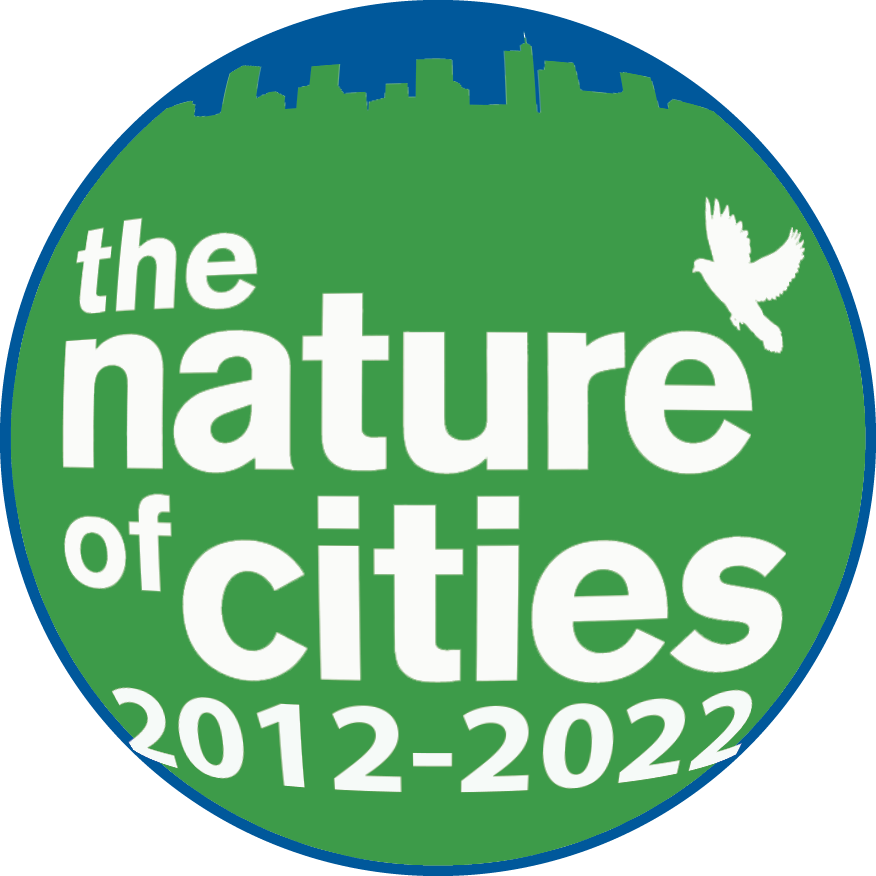

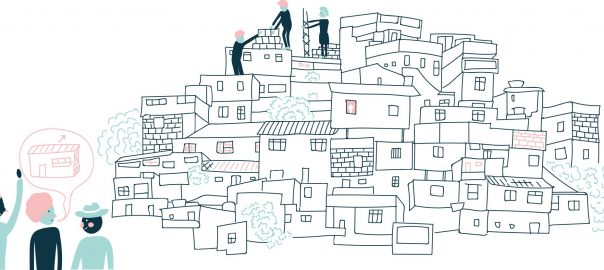

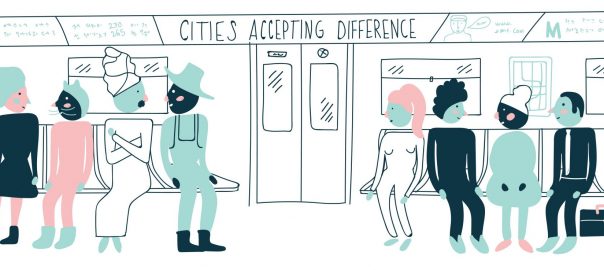

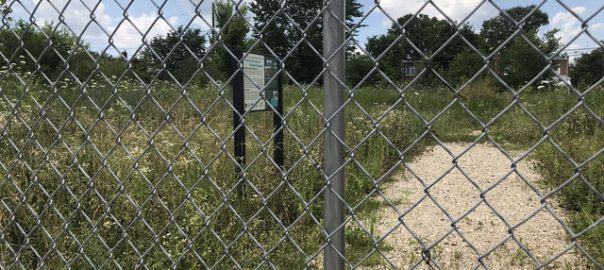
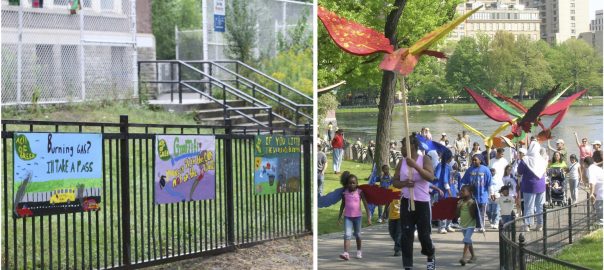

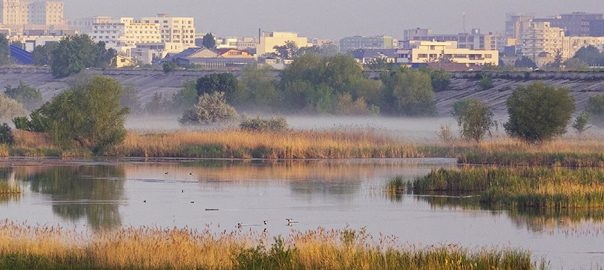
Interesting article. Issues well articulated. But then involve the religious leaders. They have a great following. They have mobilised people to contribute to the cancer machine for the case of Uganda, there is another run for building a hospital in Nkozi along masaka road to cater for those who get involved in accidents. At the beginning and end of each sermon talk about the environment and how to preserve it.
Instead of the youth selling off their land and buying motorcycles aka boda bodas and hitting the city case in point Kampala and have caused more havoc. They should be encouraged to do farming but then government should provide seeds, better breeds of animals for rearing ,good infrastructure all in a bid to deter the youth from moving to city centres. Involve the local media especially radio stations like CBS that have programmes of ‘bulungi bwansi’that encourage people to keep their homesteads and surroundings clean,plant more trees to conserve the ecosystem. Examples from Uganda